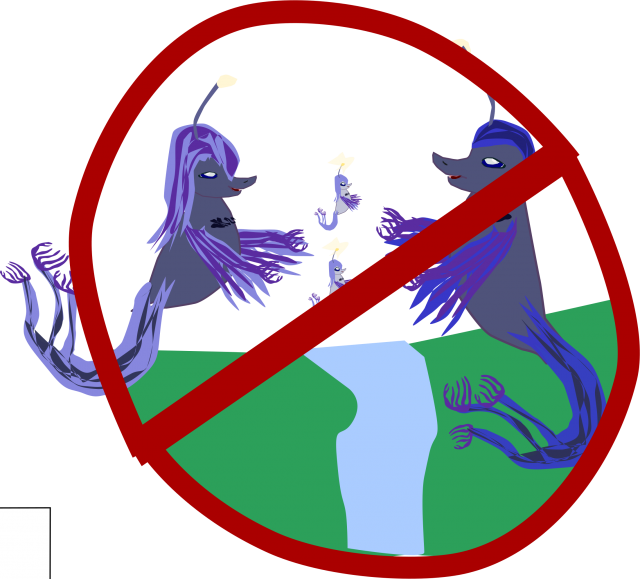NEVER release an aquarium fish into the wild.
- Thread starter ewurm
- Start date
You are using an out of date browser. It may not display this or other websites correctly.
You should upgrade or use an alternative browser.
You should upgrade or use an alternative browser.
- Status
- Not open for further replies.
They are aquarium fish too so the same goes for them.what about goldfish?
They are aquarium fish too so the same goes for them.
they re in the Carp family and stir up the bottom constantly creating mud clouds which prevent sunlight from allowing plants to perform photosynthesis and produce chlorophyll and so they soon die, and this process combined also takes a large amount of oxygen from the water making other either relocate or perish.what about goldfish?
...is that even a question? One of the most invasive fish next to cichlids, and can tolerate much lower temps.what about goldfish?
I think Arizona natives can attest to this, because of sport fish, bass, sunfish, rainbow trout, almost EVERY native fish is either endangered or extinct... Fish that are endangered include the Colorado Pikeminow, bonytail chub, humpback chub, razorback sucker, Apache trout (caused by interbreeding with nonnative trout), gila topminow and the desert pupfish. Let's hope these fish can recover...
I'm making that the theme of a science fiction book idea I'm working on.
In the book a lot of people think that it's cute for their 8 year old kid to free there pet seahorse like creature called a Aqua when the pet Aqua out grows the tank.
But in the book the Aquas in the wild end up eating all of the vegetarian bare in a lot of the lakes and rivers on earth. The local and state government are forced to poison a lot of the rivers and lakes with Aqua blood anti coagulant that makes the Aquas bleed to death. Hunters are also forced to go out at night and shoot to kill all Aquas in rivers and lakes.
The main moto of the book is a Aqua in a Tank is a safe Aqua. A Aqua in a river or lake is a dead Aqua.

In the book a lot of people think that it's cute for their 8 year old kid to free there pet seahorse like creature called a Aqua when the pet Aqua out grows the tank.
But in the book the Aquas in the wild end up eating all of the vegetarian bare in a lot of the lakes and rivers on earth. The local and state government are forced to poison a lot of the rivers and lakes with Aqua blood anti coagulant that makes the Aquas bleed to death. Hunters are also forced to go out at night and shoot to kill all Aquas in rivers and lakes.
The main moto of the book is a Aqua in a Tank is a safe Aqua. A Aqua in a river or lake is a dead Aqua.

fish in the wild all badIntroducing an aquarium fish to the wild, wether native or non-native is a cardinal sin for a fishkeeper. Even wild caught native fish can pick up non-native disease in your tank that you could be unleashing upon the native ecological system. A non-native introduction is even worse. Non-native species compete with native fish for food and habitat, eat native fish eggs, and even destroy habitat all together. Non-native species that have caused significant problems include many species of carp, zebra mussels, the round goby, the spiny water flea, and species of snakeheads just to name a few. The introduction of snakeheads to native waters has caused the ban of ALL species of Channa to be banned from the United States. These beautiful monsters are no longer allowed to be kept in aquariums. There is also a sustained population of goldfish in the mississippi river and although they don't cause much of a problem, they give DNR officials ammo in trying to ban more species of fish that you and I keep. NEVER RELEASE YOUR FISH OR INVERTEBRATES INTO THE WILD. I hate to say it but euthanizing your fish is actually a better option than letting them go. I choose neither. If there is a fish I absolutely cannot keep anymore, I sell it or give it to another fish keeper that will provide a good home. I hope you will do the same.
What'd they do with it?Someone just fished up a piranha in sweden today, quite a large one too..
- Status
- Not open for further replies.


